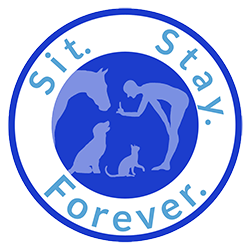
HUMANS are an overrated species, or so LEONA HELMSLEY apparently believed.
She briefly considered giving some of her real estate billions to other humans — indigent people, to be specific — but later changed her mind, leaving instead up to $8 billion in a charitable trust solely for the care and welfare of dogs. She favored her Maltese, Trouble, over her family, providing $12 million for the dog in her will, a lot more than she left her grandchildren.
Predictably, the news of the extent of Mrs. Helmsley’s charitable bequest was greeted last week with outrage about misguided priorities and jokes about a wealthy woman so arrogant, imperious and ill-tempered that only a canine could abide her.
But Mrs. Helmsley, though richer and crankier than most, was hardly the first person to deem the companionship of dogs or other pets more gratifying than that of people, raising the question of how common such sentiments are and whether they represent a reasonable choice in a world of fickle and unpredictable two-legged creatures, or evidence of some deep-seated psychological disturbance.
The field of psychotherapy has traditionally viewed those whose closest relationships are with animals as somehow lacking, their affections pathologically misplaced, their devotion a symptom of their inability to forge healthy connections with the humans around them.
But in recent years, researchers have begun to take far more seriously the bonds between humans and animals — perhaps unsurprising in a society where more than 68 million households include one pet — and to evaluate those relationships in a more positive light.
Their findings support the notion that feeling closer to a pet than to anyone else is more common than one might think.
“There are whole segments of the population that prefer being in the company of dogs than people, and I’m not sure that’s such a negative thing,” said Joel Gavriele-Gold, a psychoanalyst in private practice in Manhattan and the author of “When Pets Come Between Partners.”
One-third of the participants in a 1990 study by researchers at Virginia Commonwealth University were found to have had closer relationships to their dogs than to their family members, as evidenced by scores on psychological tests.
In another study, Lawrence A. Kurdek, a psychologist at Wright State University in Ohio, found that college students who had a high level of attachment to their dogs showed greater attachment to the pets than to their fathers. Their attachment to their mothers, siblings and best friends was just about the same as their attachment to their canine companions, Dr. Kurdek found.
The study, reported in the April issue of the Journal of Social and Personal Relationships, found that the students who were most strongly attached to their dogs did not show high levels of anxiety or avoidance — characteristics that some therapists would expect to see in people with unusually fierce bonds to animals.
The finding, Dr. Kurdek wrote, supports the idea that “people strongly attached to their pet dogs do not turn to pet dogs as substitutes for failed interactions with humans.”
To Dr. Gavriele-Gold, the intensity of the relationship between people and their pets is unsurprising.
“Humans tend to be very disappointing — notice our divorce rate,” Dr. Gavriele-Gold said. “Dogs are not hurtful and humans are. People are inconsistent and dogs are fairly consistent.”
Still, he said, he has seen patients who, betrayed and wounded in childhood, have turned to a cat or dog for the uncritical support and love they never received.
“If you grew up in an atmosphere where you were abused, you’re not going to have a high regard for people,” he said.
Bennett Roth, also a psychoanalyst in Manhattan, recalled a woman he once treated who viewed the years of her life through the lens of what dog or cat she owned at the time.
“The cats were essentially more reliable to her than her family had been, and she didn’t feel safe with other people,” Dr. Roth said.
In other cases, a pet can provide an outlet for more unpleasant traits, like a need to control others, a refusal to compromise or an inability to grant other people autonomy.
Dr. Gavriele-Gold described one patient as “a total control freak” who became a dog trainer.
“It worked out really well for him,” he said. “He was able to marry a woman who was totally laid-back, and he had no desire to control her because he was able to do it with the dogs.”
Several experts said that from everything they had read about Mrs. Helmsley, who died last August, her relationship with her dog may have fallen into the pathological category.
Healthy or not, Mrs. Helmsley did not go quite as far in her devotion as some others. She may have backed her love for Trouble with millions, but, perhaps because she hailed from a more staid generation, she never quite declared the bond exclusive.
Others do. A Web site in England, WWW.MARRYYOURPET.COM, features testimonials from pet owners who claim, seriously or not, that their relationships with their dogs or cats are primary. And Marc Bekoff, an animal researcher in Colorado, said he was startled recently at a meeting when a woman kept talking about her “significant other.”
It turned out, he wrote in an e-mail message, that she was talking about a beagle.
